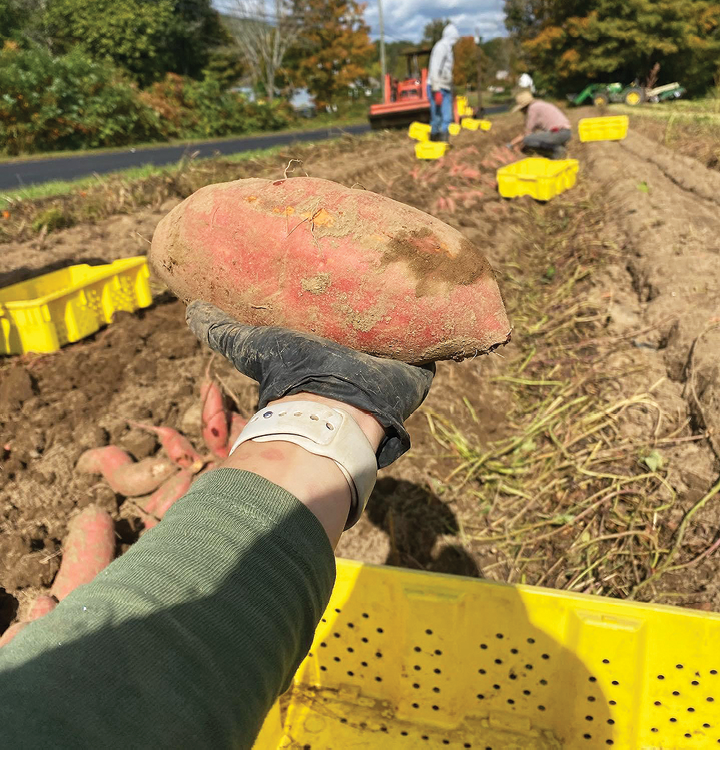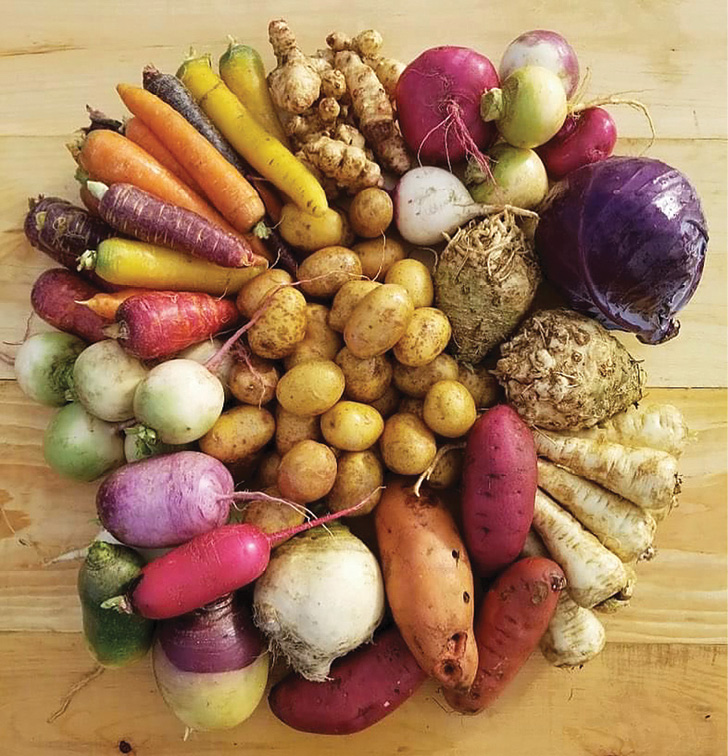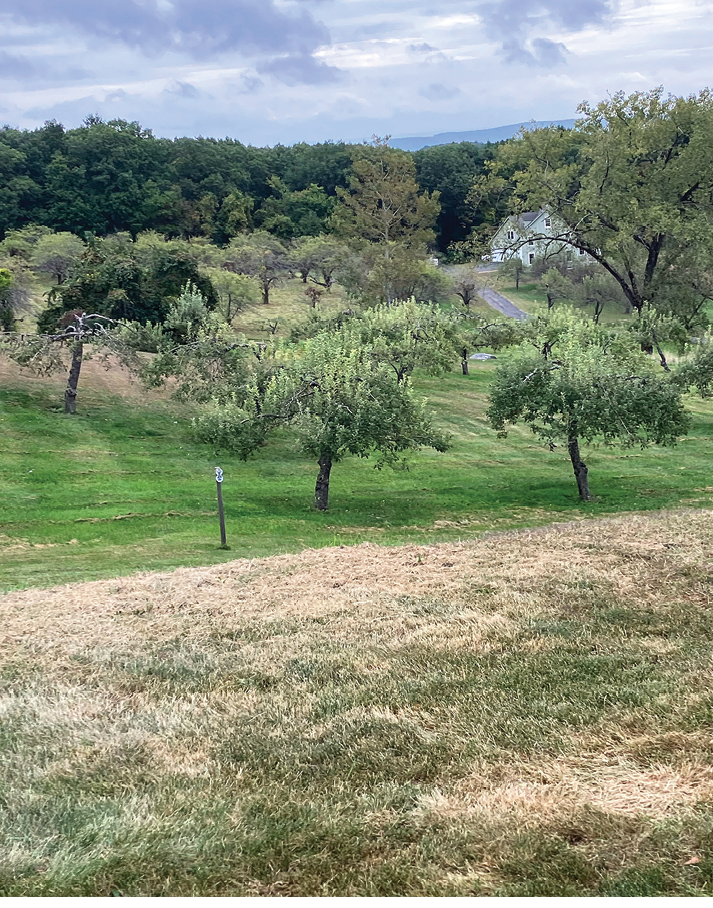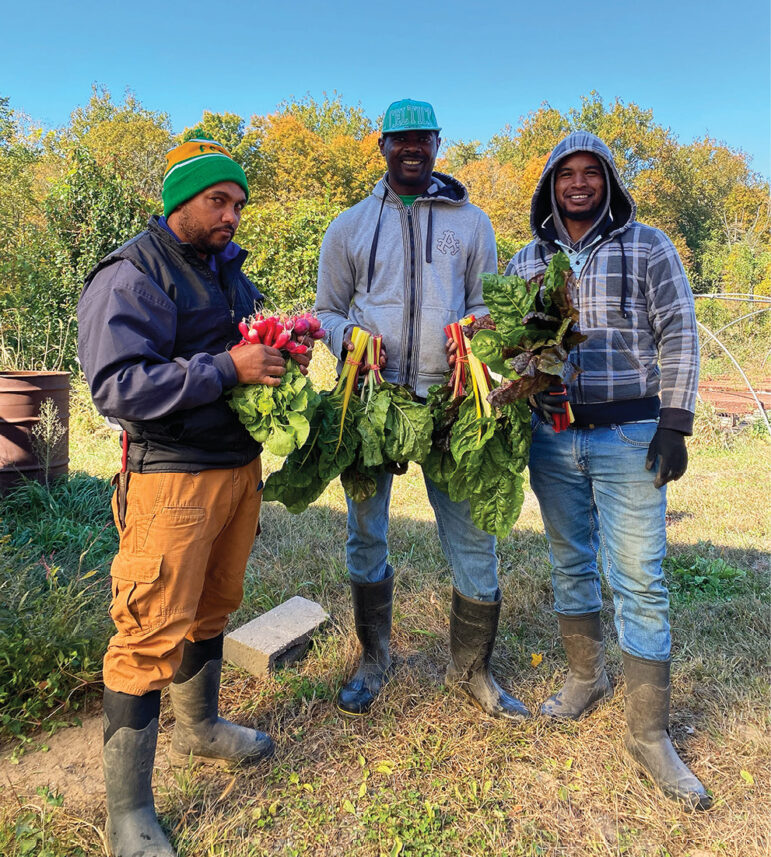‘Tis the season for thanks and giving
In farming, and especially in New England, October is the time of year for celebration, and the Friends of Holcomb Farm are celebrating the harvest of 2024 big time and giving thanks for the generosity of our neighbors and the hard work of our farm crew. After last year’s excessive rains cut the harvest short, we were thrilled to dig into the ground and find the winter veggies—sweet potatoes, onions, carrots, turnips, potatoes and more—flourishing. As a result, we were able to offer our Winter CSA Share program, which quickly sold out.

Where to buy winter veggies
Don’t despair if you missed out: we will be open for business at the Farm Store with all these goodies, plus fresh greens from the greenhouses, just in time to support your Thanksgiving feast. Stop by Friday, Saturday and Tuesday, Nov. 22, 23 and 26, between 10 a.m. and 4 p.m. Or join us and other local producers at the Lost Acres Vineyard Thanksgiving Farmers’ market on Monday, Nov. 25 from 1 to 7 p.m.

Thank you, Maletz family!
For the past several years, we have augmented our Holcomb Farm-grown bounty with fruit (thank-you, Thrall Farms) to enhance our Fresh Access distributions. This year, the bounty became an apple bonanza thanks to another neighbor. In late September, Skip and Shelly Maletz of East Hartland generously opened their private apple orchard and donated the entire harvest to Fresh Access. Nine Fresh Access volunteers worked with Skip and Shelly to pick clean their beautiful trees and remove all drops from the ground. Between Sept. 23 and 24 more than 2,200 pounds of apples were harvested, and all 50 trees were prepared for winter. The donated fruit will be distributed by the seven Fresh Access Community Partners to their many clients and members. Thanks to Skip and Shelly Maletz for their generosity, and to our wonderful volunteers for their tireless work: Lori and Fran Armentano, Donna Snyder, Kathy Haury, Patty Sansone, Ann Wilhelm, JoAnn Smith, Lynn Barragan and Laura Midura.

We invite you to tea
Worms. Magical creatures that seem so unassuming but create so much life. This month Cat Kadrle wanted to learn more about the new worm tea composter. There’s no better person at Holcomb Farm to ask than soil guru Emma Hoyt. Hoyt fills many roles at Holcomb Farm. Many of you know her as a friendly and knowledgeable crew member and store attendant. Hoyt also serves as our wholesale manager, as well as a studied ecologist focusing on the long-term health of the land. We had many questions for Hoyt about a recent acquisition, the compost tea maker. Compost tea is an infusion of worm castings and water, which imbues the soil with incredible nutrients.
CK: Tell us about the new compost tea machine.
EH: It’s a 25-gallon compost tea brewer made from a 30-gallon garbage can. It was very cheap and easy to make and works really well! We were brewing five gallons at a time in a bucket, so now we can make much bigger batches at a time and use it on many more crops.
CK: What inspired you to build it?
EH: I learned about compost tea/vermicast tea from a few workshops. I learned that it can help combat fungal and bacterial diseases, which we are seeing more and more of as the climate here gets wetter and hotter. This tea is full of living soil organisms: bacteria, fungi, nematodes, amoebas, mites and other creatures that can out-compete diseases that try to infest a plant. It can also improve the health of the plants by adding more of these creatures to the soil where they break down organic matter into usable nutrients for the plants and consume detrimental organisms. Newer scientific studies are showing that plants need to form relationships with various soil organisms in order to thrive.
CK: What is it about a worm casting that is superior for the purposes of fertilization?
EH: Worm castings, since they come from soil-dwelling creatures, contain soil-dwelling organisms. They, like other manures, contain fertilizing nutrients as well, but their biological profile makes them more useful for our specific purpose. And because we brew the tea, during which we feed and multiply the organisms, we can get a lot of tea from a small amount of castings, making the whole process very cost effective. For the home gardener, keeping a worm bin is much less work and money than keeping livestock.
CK: How would you scale this down for a home gardener/farmer?
EH: A home gardener could easily keep worms and reap the benefits. You can buy pre-made worm bins or find instructions to make your own. You have to buy the worms; the traditional worms for worm bins are not native and can’t survive here. Whenever you harvest your castings, you can either put them directly into the soil (mimicking nature and adding to what the native worms are already doing) or you can amplify the organisms by brewing tea and watering it or spraying it on the plants. Home brewing is very easy and cheap, and instructions can easily be found on the internet.
CK: What would be your next item on a wish list for soil health?
EH: A better sprayer to deliver the tea. Our current tractor-run sprayer is not great for a living spray; there is too much pressure and too many hose bends.
CK: What drew you to study ecology?
EH: I majored in EEEB (evolution, ecology and environmental biology). I have always been interested in nature and the relationships between all living things, charismatic or not. Soil science is one specific piece of ecology and understandably very important for a farmer to understand. At Holcomb Farm our approach is to focus on the health of the soil and the plants as a means to defend against diseases and pests, and therefore we need to understand what’s happening in our soil.
Thank you to Emma Hoyt for her time and talents growing our food and nurturing our soil. Without dedicated, passionate farmers like Emma, Granby would not be the community it is today.

